While onboard the humanitarian rescue ship Ocean Viking, Fellipe Lopes, Communications Coordinator for SOS Méditerranée, documented testimonies from migrants who suffered brutal abuse in Libya.

I joined Ocean Viking in mid-April. In the following weeks, we conducted four rescue operations, saving a total of 234 people. Survivors shared harrowing accounts of torture, forced labor, and sexual abuse in Libya.
Talking to survivors onboard, it became clear that an inhumane and profitable system operates with protection in many parts of Libya. Extortion and torture are common elements in the process of obtaining freedom. Many survivors reported being forced to work long hours without pay. A masked man entered their rooms daily and forced them to call their families to demand money. The message was simple: no money, no freedom.

For years, Libya has served as a key transit point for people seeking safety in Europe. Many begin their journey in other countries, misled by the promise that a boat from Libya will take them directly to Italy. That promise is false.
Once in Libya, migrants are frequently captured by militias or organized groups. These groups extort, torture, and enslave them. Survivors described widespread rape, arbitrary detention, sexual slavery, and murder. Both militias and state-affiliated groups participate in these abuses.

Since 2014, more than 31,000 migrants have drowned in the Mediterranean Sea. It remains the deadliest migration route in the world. In the Central Mediterranean, where state-led rescue operations are largely absent, civilian ships conduct most rescues. Instead of support, many face criminal charges for their efforts.

A man who asked to be called “Lamunn” said he had applied for visas in Germany, the Netherlands, and Italy several times, but never received a response. Armed men in Libya forced him to witness sexual assaults and subjected him to repeated rape. After going three days without water, he asked for some — but because he didn’t speak the local language, the guards beat him. “Trauma is the only word,” he said. “I would rather die at sea than spend another day in Libya.”

Rebecca, Medical Team Leader for SOS Méditerranée, said, “Part of my role onboard is not only to provide medical care but to support people psychologically. Sometimes it’s through basic psychological first aid. Sometimes we connect them to organizations on land that can give them the long-term support they need. To see people withdraw into themselves and disassociate from the world — because that is their only refuge — is devastating. We do what we can while they are with us, if only to show that there is still kindness and a gentle touch.”

Rebecca added, “In four years of work onboard, I have seen many survivors of the brutal conditions in Libya. The scars are not only on the body — unhealed wounds, burns, broken bones — but also in the mind.”
The United Nations report Abuse Behind Bars: Arbitrary and unlawful detention in Libya, published in April 2018, concluded that thousands of people are held in unlawful detention by armed groups, including state-affiliated groups. These people are routinely tortured, raped, and enslaved.
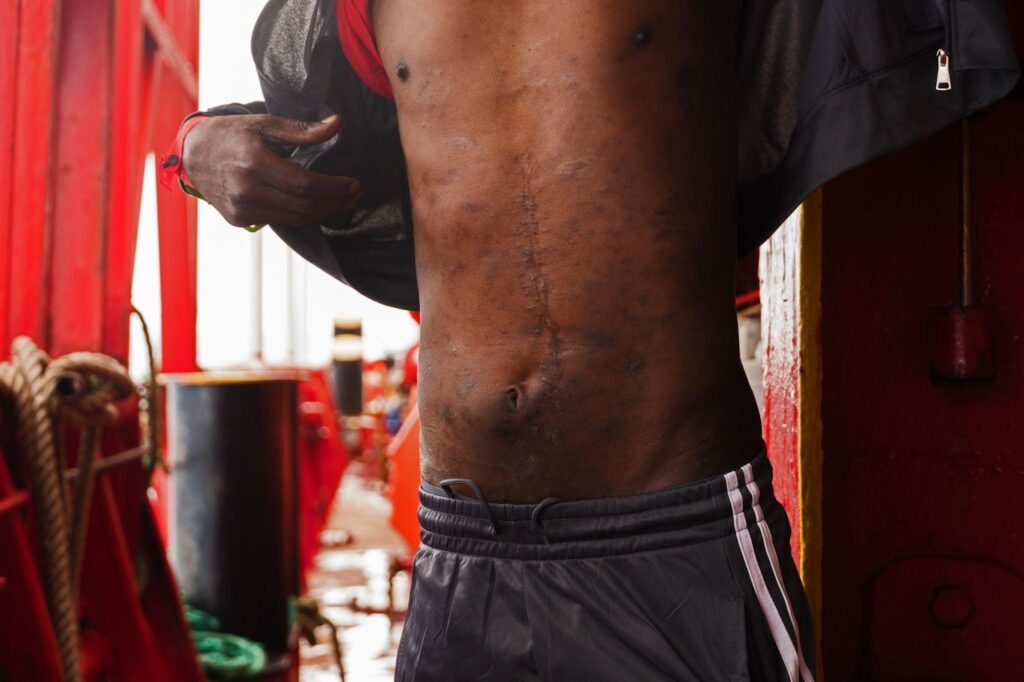
Libya’s detention system is designed to profit from human suffering. Its network reaches across borders. In Libya, authorities allow this system to persist. The EU funds and supports the Libyan government’s efforts to curb migration. At sea, the EU provides funding and training for the Libyan Coast Guard. This group has been accused of violently intercepting rescue operations and forcing migrants back to Libya, where they reenter the cycle of abuse.
[SOS Méditerranée is a humanitarian maritime organization founded in May 2015 in response to the rising death toll in the Central Mediterranean and the failure of the EU to act. It operates through a European network based in Germany, France, Italy, and Switzerland. From February 2016 to October 2018, SOS Méditerranée operated the rescue ship Aquarius. Today, it continues its mission with the ship Ocean Viking. Since 2016, SOS Méditerranée has rescued 42,052 people at sea.]
The views expressed in this article are the author’s own and do not necessarily reflect Fair Observer’s editorial policy.
Support Fair Observer
We rely on your support for our independence, diversity and quality.
For more than 10 years, Fair Observer has been free, fair and independent. No billionaire owns us, no advertisers control us. We are a reader-supported nonprofit. Unlike many other publications, we keep our content free for readers regardless of where they live or whether they can afford to pay. We have no paywalls and no ads.
In the post-truth era of fake news, echo chambers and filter bubbles, we publish a plurality of perspectives from around the world. Anyone can publish with us, but everyone goes through a rigorous editorial process. So, you get fact-checked, well-reasoned content instead of noise.
We publish 3,000+ voices from 90+ countries. We also conduct education and training programs
on subjects ranging from digital media and journalism to writing and critical thinking. This
doesn’t come cheap. Servers, editors, trainers and web developers cost
money.
Please consider supporting us on a regular basis as a recurring donor or a
sustaining member.
Will you support FO’s journalism?
We rely on your support for our independence, diversity and quality.


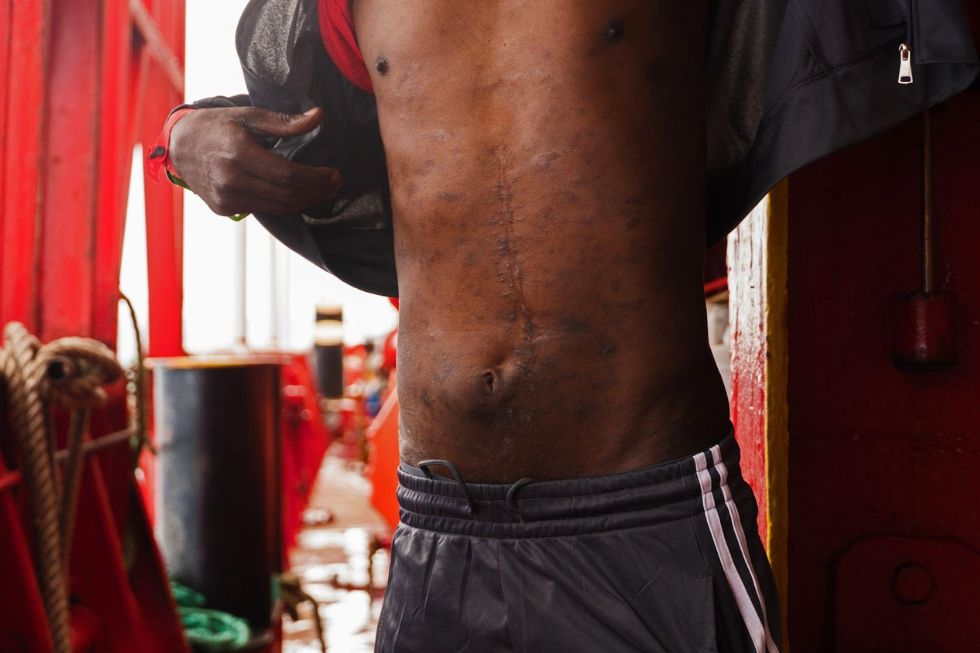
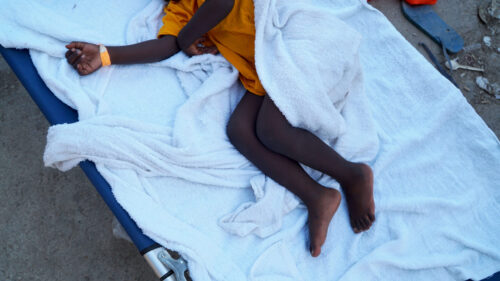

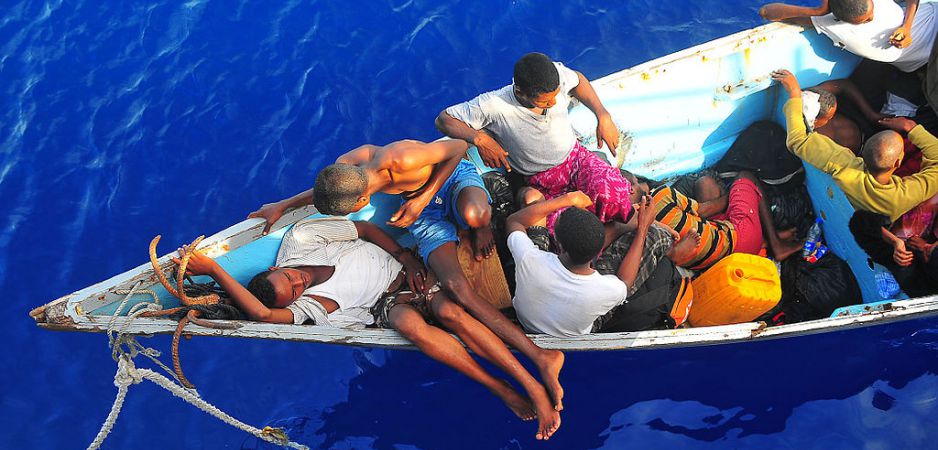
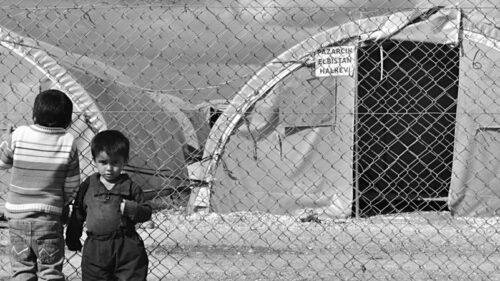


Comment